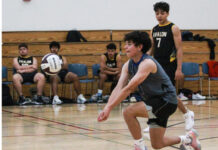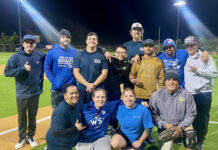Boater’s use many VHF channels when operating off Catalina Island; some are for safety (16) some are for contacting local harbors (12) some are for radio checks (09) and some are for commercial use. These are important channels, but if you want to learn to fish Catalina and the surrounding offshore waters, channel six-five is the angler’s local channel. It is amazing what you can learn by listening and scanning these channels, but you need to know how to “hear between the lines.”
Boater’s use many VHF channels when operating off Catalina Island; some are for safety (16) some are for contacting local harbors (12) some are for radio checks (09) and some are for commercial use. These are important channels, but if you want to learn to fish Catalina and the surrounding offshore waters, channel six-five is the angler’s local channel. It is amazing what you can learn by listening and scanning these channels, but you need to know how to “hear between the lines.”
One of the best times to learn to use the VHF as a tool for collecting fishing info is during a local tournament. Every tournament needs to have a channel for communicating hook-ups, location and general information from the participants to “tournament control.” It usually does not take long to find the channel with your VHF on “scan all,” but you can bet it will be 65 or 71. If you can get a grid map of the tournament’s zones you will improve your information gathering efforts tremendously since all hook-ups must be reported and recorded by time, boat name, angler and sometimes other info such as “bait or jig,” “line test” and even “bageled or not bageled.”
Aboard Afishinado, if two or more fish (marlin) are hooked in the same grid and we are not “in the fish,” we make the move; that is how important the information can be. However, there is a lot of misinformation and general radio chatter that is simply noise. Good captains know how to pull the good “dope” out of the noise.
Here are a few tips:
1. Learn the names of the captains and boats in the tournaments and the ones that are the high-liners, frequent winners. They are likely to go “radio-silent” come tournament time, but even the best will let info slip out.
2. Learn the grid … enough said.
3. Learn the shorthand names of the banks and ridges within the grid. If you are “off the slide” and hear some good dope “off the head,” then another report of a hook-up in “the pond” … you want to know which is closer.
4. Learn how the fish are acting. A common slip is to mention, “we had a few feeders come up, but could not get on them fast enough,” and then “water is 69.” That is info you can use.
5. Know “the other one,” by scanning channels and remembering what you hear. Get in the habit of making notes of important info.
Lastly, do not even dare ask for numbers on the VHF! Happens every day, “hey, you guys on six-five talking about Dorado, can you tell me where you are?” Forget it, you already got some great info.










